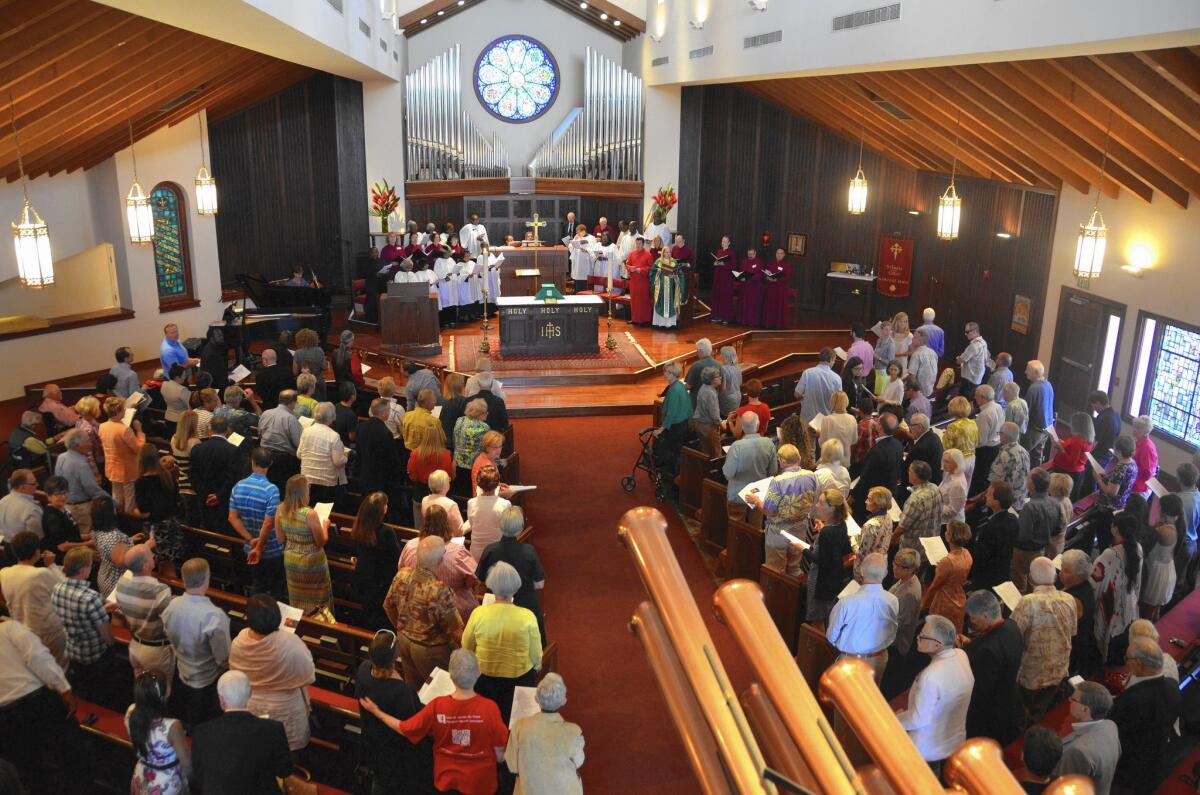Episcopal panel reviewing bishop’s actions in St. James church sale, closure

A three-bishop panel with the national Episcopal Church will review Los Angeles Bishop J. Jon Bruno’s actions related to his plan to sell St. James the Great Episcopal Church in Newport Beach.
Members of the St. James congregation sent a complaint, known as a presentment, to the national Episcopal Church in New York City in early July alleging that Bruno violated church doctrine in May after he put the St. James property, at 3209 Via Lido, up for sale to a developer and locked out the congregation.
The complaint alleges “violations of the vows of ordination,” including dishonesty, fraud, deceit or misrepresentation, and that Bruno participated in “conduct unbecoming to a bishop,” according to a news release from the congregation.
Joining the presentment were eight clergy membersfrom Orange and Los Angeles counties.
“Since the receipt of your allegations, I have been conducting interviews and reviewing correspondence with persons relevant to the matters you have raised,” the Rev. F. Clayton Matthews, bishop of pastoral development, wrote in a letter to the congregation last week. “I have determined that if the allegations presented are true, canonical violations may have occurred.”
A spokesman for the Episcopal Diocese of Los Angeles could not be reached for comment Friday.
In May, Bruno announced to the St. James congregation that the church building and two nearby parking lots were being sold for about $15 million to Legacy Partners Residential, which plans to build 22 high-end townhomes on the site. The sale has yet to close escrow.
Less than a month later, the congregation held its last service at the church. Days after that, members say, Bruno had the locks changed on the building and would not allow the congregation back in.
Parishioners and the church vicar, the Rev. Canon Cindy Evans Voorhees, have been holding services in a park across from the church since June.
The three-bishop panel reviewing Bruno could choose to mediate the situation, sanction the bishop or remove him from his position, the news release states.
“I hope this can quickly bring some sanity to the current situation where the diocese has locked out the congregation from the building, has claimed that I have resigned and is otherwise completely unresponsive,” Voorhees said.
It is unclear why the sale has not closed. On June 26, Bruno filed a lawsuit in Orange County Superior Court against the Griffith Co., the former property owner, asking a judge to affirm his right to sell the property for residential use.
Ownership rights were transferred from the Griffith Co. to the Los Angeles diocese in 1945 with the restriction that the site remain a church.
Lawyers for the diocese argue in court documents that the church in 1985 negotiated removal of the use restriction from the deed, granting the diocese the right to sell the property for other purposes. Griffith Co. lawyers wrote in court documents that the restriction was never removed.